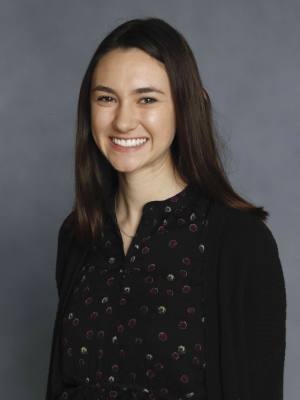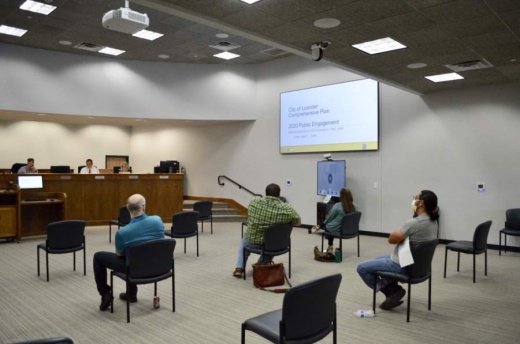Halff Associates, the consulting firm that Leander hired to develop the plan, presented its summary of citizen input to Leander City Council on May 7. The presentation was during a joint workshop among City Council, the Leander Planning and Zoning Commission, and the Leander Comprehensive Plan Advisory Commission.
Matt Bucchin, the firm’s director of planning, said the firm is about one-third of the way through the public engagement process.
“The whole first part of the process is about really listening to your community,” Bucchin said. “It truly does allow us to capture what we’ve heard and start to pull that into the plan vision and the themes and goals.”
Leander residents' top concern is financial burden and taxes, which is followed by concerns over unmanaged growth, traffic, loss of open spaces and natural resources, increased housing costs, changing community identity and other concerns.
Leander residents shared opinions on the city plan at a Feb. 19 open house and in an online survey that lasted Feb. 1 through March 10. The open house gathered about 119 attendees, and the survey received 1,363 responses, according to Halff Associates. Meetings with community stakeholders and the advisory committee also gathered feedback for the comprehensive plan.
These are some key findings from the survey and open house, according to the responses collected by Halff Associates:
- Residents’ vision for Leander, in order of importance, included a strong economy, parks and trails, traffic congestion, old town as a destination, jobs, community character, housing affordability, community gardening spaces and public safety.
- Open house attendees highly supported nightlife and weekend activities in the community development section.
- Open house attendees highly supported a focus on restaurants and retail to promote the community.
- Survey respondents were most satisfied with city services including police, fire and emergency medical services.
- Survey respondents were most dissatisfied with senior services and programs, city trails, and recreation services and programs.
- Survey respondents’ top transportation issue was traffic congestion; 30.2% of respondents said better signal timing would be a congestion relief solution, and 23.5% suggested additional turn lanes as a solution.
- A majority of respondents wanted single-family detached housing development. This housing type includes estate lots, cottage garden homes, townhomes and traditional lots.
- At the open house, safety for pedestrians was a top priority; 56% of respondents wanted improved sidewalk conditions and adequate sidewalks in high-pedestrian areas.
Council Member Jason Shaw and one meeting attendee called for a broader reach to gather more citizen input. An estimated 1,500 responses were gathered from the survey, open house and meetings with stakeholders and advisory committee.
Mayor Troy Hill said the city should redouble its efforts to get people to attend the next open house. The most recent comprehensive plan gathered about 40 people—a record at the time, Hill said.
"I went home and said 'Oh my gosh, 40 people are going to decide the future direction for our city,'" Hill said. "I think it's always been a challenge."
A second open house is scheduled for August or September, Maddox said, but no official date has been set.





